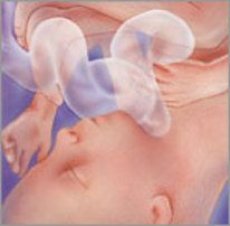Medical expert of the article
New publications
Pregnancy: 18 weeks
Last reviewed: 08.07.2025

All iLive content is medically reviewed or fact checked to ensure as much factual accuracy as possible.
We have strict sourcing guidelines and only link to reputable media sites, academic research institutions and, whenever possible, medically peer reviewed studies. Note that the numbers in parentheses ([1], [2], etc.) are clickable links to these studies.
If you feel that any of our content is inaccurate, out-of-date, or otherwise questionable, please select it and press Ctrl + Enter.

How the child grows:
The baby has grown to 14 cm and weighs almost 200 grams. It is busy bending its arms and legs - movements that you will begin to notice more and more often. Its blood vessels are visible through the thin skin, and its ears are in the correct final position. A protective coating - myelin - is beginning to form around the nerve fibers, a process that will continue for another year after the baby is born. If you are having a girl, then her uterus and fallopian tubes are already formed, and if it is a boy, then during an ultrasound examination, you can already see the primary sexual characteristics.
Important: Each baby's development is unique. Our information is designed to give you a general idea of fetal development.
Changes in the expectant mother
Hungry? Excessive appetite is quite common at this stage of pregnancy. Choose nutrient-rich foods instead of empty calories (fries, candy). Large, comfortable clothes are a necessity at this stage, due to the growing appetite and increased waist size.
Your cardiovascular system is undergoing significant changes, and your blood pressure is likely to be lower than usual during this trimester. Avoid changing your body position too abruptly, as this may cause dizziness. From now on, try to sleep on your side, as lying on your back can cause your uterus to compress a major vein, reducing blood flow to your heart. Use pillows behind you or between your legs for added comfort.
If you haven't had a second-trimester ultrasound yet, you'll soon be scheduled for one. This painless procedure helps monitor your baby's growth, identify certain birth defects, check the placenta and umbilical cord, determine the exact gestational age, and see how many fetuses you have. During the exam, you may notice your baby's movements and see him sucking his thumb.
Daytime Rest, "If you find yourself getting very tired during the day and literally falling asleep, find a place where you won't be disturbed (close the door to your office or sit in the back seat of your car), set your alarm for 15 to 20 minutes, close your eyes and try to relax." - Laura.
3 Questions about... training
- Do I need to change my study schedule?
In most cases, if you are healthy and your pregnancy is uncomplicated, you can continue your usual activities during the first trimester - with some modifications to accommodate your growing belly. Stick to a moderate level of exercise and avoid sudden or intense movements.
- I have been sedentary for quite some time but would like to start doing some exercises. How can I do this?
First, discuss your plans with your doctor, after which you may want to start with short (about 15 minutes a few times a week) and gradual physical activity. Walking is the easiest way to get regular exercise. Many women enjoy swimming during pregnancy because the water helps support their extra weight. Others sign up for prenatal yoga classes to strengthen their muscles.
- What are Kegels?
Kegels are exercises designed to strengthen the muscles of the pelvic floor: the urethra, bladder, uterus, vagina and rectum. Kegels help prevent urinary incontinence during pregnancy, increase blood circulation to the rectal and vaginal area, to prevent hemorrhoids and speed up healing after childbirth.
Performing exercises:
- Tighten your vaginal muscles as if you were trying to stop the flow of urine. Do this exercise using only your pelvic muscles, without using your abdominal or leg muscles. Do not hold your breath.
- Hold this tension for eight to ten seconds, then relax. Repeat up to ten times three to four times a day.
This week's activity: Find courses for expectant parents. To find convenient and professional courses, consult with your doctor.


 [
[